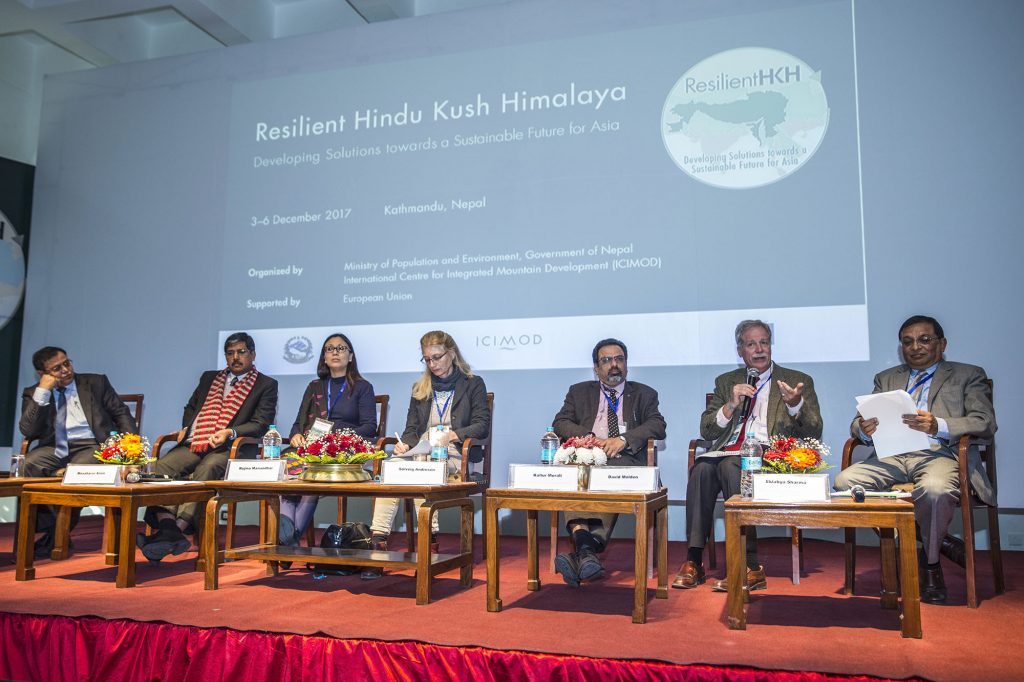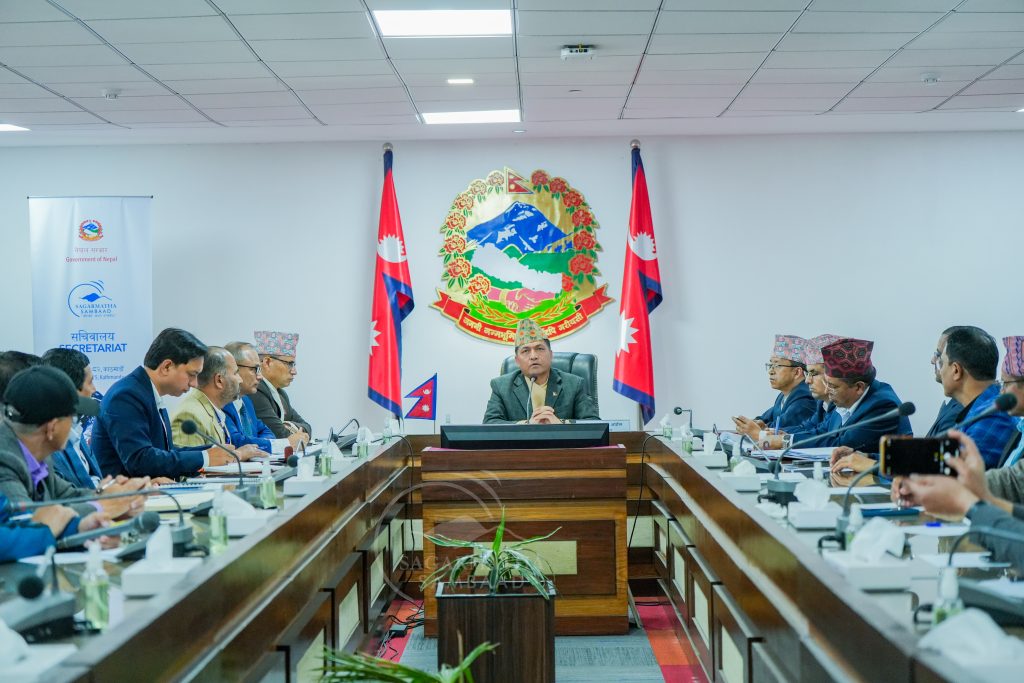Experts renew the call for collective and inclusive action in the Hindu Kush Himalaya
- Nature Khabar


Four-day international conference which discussed wide-range of issues relating to Hindu Kush Himalaya (HKH) concluded on Wednesday evening. The discussions witnessed invigorating discussions on resilience issues in HKH. The program was organized by, Nepal’s Ministry of Population and the Environment (MOPE) and the International Centre for Integrated Mountain Development (ICIMOD) closed the international conference Resilient Hindu Kush Himalaya: Developing Solutions towards a Sustainable Future for Asia today in Kathmandu.
ICIMOD Director Molden inaugurated conference last Sunday asking the attendees to help change the narrative about mountain from one of vulnerability to one of opportunity and innovation.
At today’s closing session, Molden called attention to the crucial need to include youth and women in future mountain planning and development across all sectors.
Resilience is the ability of communities and ecosystems to be prepared for shocks, recover from shocks, and “bounce forward” to emerge stronger than before. ICIMOD and its partners have been working on developing solutions for resilience building, promoting regional cooperation, and enhancing knowledge for sustainable mountain development.
On topics ranging from disaster risk reduction to gender equity and building social capital, all the sessions held over the past four days repeated a theme of collective action for increasing the resilience of mountain communities in the HKH, where impacts from climate change, outmigration, and dwindling natural resources pose formidable challenges.
Picking up on Molden’s charge to change the narrative about mountains, Roland Schaefer, the German Ambassador to Nepal, said the HKH is well-positioned to harness the power of social capital in the region: “The [HKH] has a unique brand that signifies trust, reliability, and inherent ability for planning that stems from the deep social [ties] of the mountain communities. This is a strong brand that should promoted and positioned outside,” he said.
Changing the narrative will also require significant coordination and cooperation among HKH countries. “HKH challenges are often transboundary and geopolitical in nature. Addressing such challenges requires transformative, inclusive and scalable actions at all governance levels,” said Rojina Manandhar, a programme officer with the United Nations Framework Convention on Climate Change.

The conference focus on mountain resilience served more than just mountain people and communities. The HKH sources 10 major river systems in Asia that provide water, ecosystem services, and livelihoods to more than 210 million people. The region holds and distributes water for more than 1.3 billion people living in downstream river basins. The HKH, all the panelists agreed, is an asset of global importance.Secretary Prakash Mathema, Ministry of Population and Environment, Government of Nepal, "This conference has been able to raise awareness on resilience solutions from mountain perspective. It has also encouraged partnership for urgent actions to combat climate change and other threats to the lives and livelihoods of the vulnerable people of the Hindu Kush Himalayan region."
The European Union and ICIMOD jointly organized this conference through the "Himalica" initiative. The EU’s Ambassador to Nepal, Veronica Cody, said “This international conference provided an excellent opportunity to bring international and regional stakeholders together to identify concrete, actionable steps for collective action towards higher resilience in the HKH region. This can be a valuable input for policy makrs in the region.”




Feedback